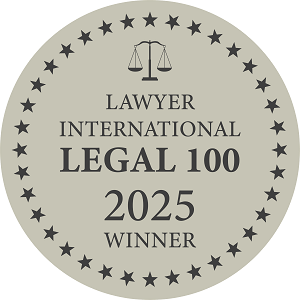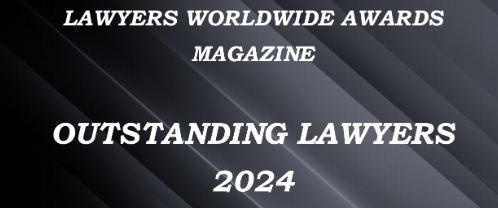How to gather evidence for a settlement agreement

A lot goes into building a compelling settlement agreement - it's often a daunting task, but with the right knowledge to hand, your chances of a favourable settlement agreement improve greatly.
So, how do you build a winning settlement agreement case?
What can I do to improve my chances of a high-value settlement agreement?
For the best outcome possible, you need to build a compelling case. There are a few things you can do to ensure this:
- Understand your claim
- Use credible, persuasive and relevant evidence
- Be critical of your evidence
- Support your strongest arguments
- Enter negotiations with an open mind
Building evidence for settlement agreement
When negotiating with your employer, approach it with the same rationality and critical thinking as a lawyer - as companies often have lawyers on hand who deal with all legal matters.
As your "without prejudice" letter will likely be sent to the lawyer, the evidence should be clear & concise so they can understand it. If they can't, or the evidence is deemed not relevant to claim/claims, it will be harder to agree on a high-value settlement
Which evidence should I use for my case?
The first step in gathering evidence is to understand your claims. What are you alleging that your employer did wrong? What specific laws or policies did they violate?
Once you know this, you can identify which evidence will best support them. Ask yourself the following questions when looking for the right evidence:
- Is the evidence credible? The evidence should be from a reliable source and be believable.
- Is the evidence admissible? The evidence should be relevant to the claims and admissible in court.
- Is the evidence persuasive? The evidence should be strong enough to convince your employer that you have a valid case.
Which evidence will best support you?
The best evidence to support your claims varies depending on what it is you're claiming.
If you are claiming sexual harassment by a colleague at work, a copy of your contract wouldn't be required. Similarly, if you've been unfairly dismissed for an incident everyone in the office witnessed, you wouldn't need emails from two years ago.
There are different types of evidence that can help you out depending on your case:
- Documentary evidence: This includes contracts, employee handbooks, company policies and procedures, emails, letters, performance reviews, and other written records.
- Testimony evidence: Given by witnesses under oath and can include colleagues, supervisors, customers and anyone else who may have witnessed the event.
- Expert testimony: Given by a qualified expert in a particular field, they can be used to explain complex concepts or provide an opinion on the cause of an event.
Remember, compelling cases are those which are concise and persuasive, so you should only use what is most relevant to your claims so that your employer is more likely to settle.
Unsure which evidence will best support your claim? Contact Cavendish Employment Law today.
How to present the evidence to your employer
Presenting evidence to your employer requires careful and tactful planning. Regardless of whether or not you wish to continue your employment after the claim has been settled, you should always approach the situation professionally, to achieve a fair resolution that aligns with your interests.
Here are some tips to help you agree on a fair settlement agreement:
- Present clear and concise findings
- Be prepared and ready to explain these findings
- Focus on facts and avoid emotional language
- Propose solutions or outcomes which you believe would be fair
- Document the meeting
- Consider legal advice
Next steps
If your employer is taking your claims seriously, it's because they're aware of the risk it brings. In most cases, employers are prepared to throw the book at them to ensure the business's reputation is not damaged.
Discussing your case with a legal professional is the best way to ensure you receive an agreement which is both fair and reasonable.
If you’ve been subject to unfair dismissal, redundancy, discrimination, or bad treatment in any other way by your employer, our settlement agreement solicitors can help you secure the very best outcome from your employment dispute.
Contact our Cavendish Employment Law today at 0207 9657203.
Do you have a high value employment claim as a senior employee or executive in the UK?
Our experts can help
Contact UsContact us for immediate confidential advice. Out of Hours and Weekend help available
Client Testimonials
It would not be an exaggeration to say that I was extremely pessimistic about being able to get a decent redundancy settlement. I was feeling really low and depressed. That all changed when Caroline Walker agreed to act for me.She secured an excellent settlement for me, without me having to face the expense and stress of going to court...
- Martine Roberts"I cannot recommend you highly enough. A law firm that really delivers all it promises. I never thought I would say that I found the costs reasonable, but I did, and I will never get over how much you secured for me in a totally unexpected settlement. It has set me up for the next chapter in my life. Thank you, thank you."
- J. Brown"I would like to thank you for your exceptional service. You and your firm Cavendish Employment Law have been brilliant in your responsiveness and legal advice. We have had numerous time sensitive and complex issues. You always delivered for our company in spite of very challenging timelines. I highly recommend you and your firm."
- John McVeighIt would not be an exaggeration to say that I was extremely pessimistic about being able to get a decent redundancy settlement. I was feeling really low and depressed. That all changed when Caroline Walker agreed to act for me.She secured an excellent settlement for me, without me having to face the expense and stress of going to court...
- Martine Roberts"I cannot recommend Caroline more highly. Any client of hers is really fortunate to have her on their side. She is a credit to her profession and I am most grateful to her."
- Jake Brown















